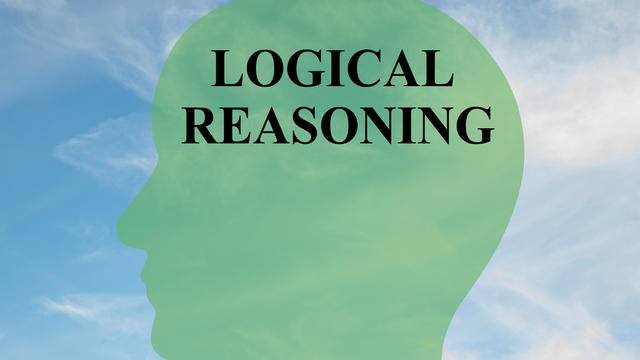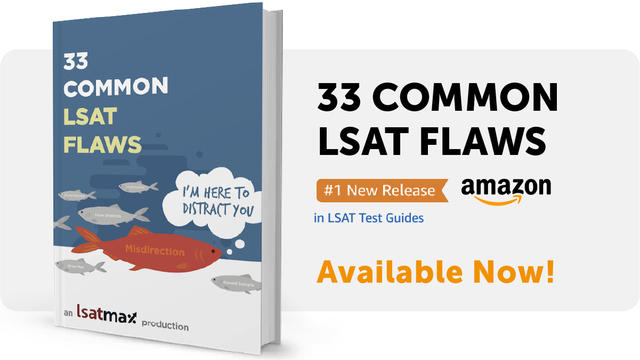Are you preparing to take the LSAT? The Law School Admission Test (LSAT) is made up of various sections that’ll test different aspects of your intelligence and capability to cope in a law school.
A section that many LSAT candidates have struggled with over the years is Logical Reasoning. We are here to help with that by providing you with everything you need to know about this tricky section and what to expect when you come face-to-face with it during the LSAT.
What is LSAT Logical Reasoning?
The LSAT Logical Reasoning test is meant to test your ability to deduce the right response to a question. This section typically provides you with a short passage, followed by a related question. You will choose the most appropriate answer from a list of numbered multiple-choice options.
To pick which of the statements best answers the posed question, you’ll have to apply structured thinking. Structured thinking means organizing the information available to you in a logical pattern to reveal suspicious gaps in data. This type of thought process is an important skill every lawyer must have to be able to isolate and identify all parts of any given argument.
Arguments are a big part of practicing law, so it’s only logical that a law school verifies that you have the skills for dissecting and winning an argument. If you can’t examine and critically evaluate arguments that occur in ordinary language, you’ll likely have trouble passing an LSAT logical reasoning test.
How to take Logical Reasoning Tests
LSAT logical reasoning test questions are typically based on short arguments drawn from a variety of scenarios. To select the best answer to a Logical Reasoning question, you’ll have to read and understand the provided short passage. You will answer questions using the information gleaned from the reading.
The skills needed to answer this type of question are associated with logical reasoning and critical thinking. Examples of such skills are:
- The ability to recognize the differences and similarities between patterns of reasoning
- The ability to recognize the relationship between the parts of an argument and the flaws in an argument
- The ability to reason by analogy and come up with well-supported conclusions
- Being able to identify points of disagreement and understand how available evidence can influence an argument
- Predicting the type of assumptions certain arguments can result in
- Being able to identify and apply given rules to an argument
To successfully tackle any LSAT Logical Reasoning question, we recommend that you do the following:
- Read each question carefully until you understand its meaning
- Consider all the provided answers
- Understand the meaning of each answer and look closely to identify which best relates to the posed question
- Answer each question based on the provided instructions and passage
- Avoid picking a response simply because it appears to be a true statement
Being an active reader is also helpful when handling logical reasoning tests. As an active reader reads a text, their mind is actively paraphrasing complicated parts, and compartmentalizing information to understand the topic, message, and purpose of the passage.
How to Prepare for the LSAT Logical Reasoning Test
While your innate intelligence plays a role in your ability to successfully tackle this test, regularly practicing logical reasoning exercises will boost your competency.
In light of this, let’s take a look at some tips that’ll increase your preparedness to answer LSAT logical reasoning questions:
- Get familiar with the types of questions asked in logical reasoning by taking as many practice tests as you can.
- Develop a checklist of useful and easy strategies that you are comfortable with to solve logical reasoning questions. This will allow you to work faster and more methodically.
- When practicing LSAT logical reasoning questions, use the same time frame as a regular LSAT exam. Doing so improves your time management and ensures you can answer all questions before time runs out in the actual exam.
Here are some books we recommend for preparing for the logical reasoning section of your LSAT:
- the PowerScore LSAT Logical Reasoning Set
- the Manhattan LSAT Logical Reasoning Strategy Guide
- the Kaplan LSAT Logical Reasoning Strategies and Tactics
- the Fox Test Prep Logical Reasoning Encyclopedia (strongly recommended as being engaging and informative, yet reader-friendly).
Logical Reasoning Sample Questions*
To give you a clear idea of the sort of logical reasoning exercises to expect on the LSAT, we’ve compiled some here for you:
Directions
The questions here are based on the reasoning in the brief passages. More than one of the provided answers may apply to the question. Choose the answer that best and most accurately responds to the question. Do not choose an answer that clashes with common sense or is incompatible with the passage.
Question 1
Manager: We recently hired three salespersons for our UK stores and online marketing. We have no direct feedback from customers at this point for the in-store marketing tactics. However, we discovered that the response to the online marketing effort is less than typical for a similar marketing strategy. Based on this, we assume that the in-store ads also performed below par as well.
The manager’s reasoning does which one of the following?
- concludes a statistical generalization based on claims regarding a large number of particular instances
- bases a prediction of a phenomenon’s success on the information about the intensity of that phenomenon’s cause
- assumes the probability of a particular event based on the information about the typical frequency of general events that aren’t necessarily related to the particular event
- makes a conclusion about an analogous case where direct evidence is unavailable by using a case that has direct evidence
- predicts future events based on facts from similar recent events
Answer: The manager, based on information from the online marketing campaign, assumes how the in-store marketing campaign has likely performed. The manager has used the analogy between the online campaign and the in-house marketing to conclude about the in-house marketing’s performance. The correct response is, therefore, (D).
Question 2
In 1907, a fatal accident occurred during the construction of the Quebec Bridge. Theodore Cooper, the bridge’s designer, was informed that the suspended portion of the bridge extending from its cantilever was slightly deflecting downward.
Before the project could be stopped, the arm of the cantilever arm broke off, plunging the suspended portion of the bridge and over 80 workers into the St. Lawrence River.
The inquiry that followed the accident resulted in the use of more rigorous applications of mathematical analysis and scrapped the use of engineering “rules of thumb.”
Which statement below can be inferred from the passage?
- Before 1907, the rules of thumb and mathematical analysis in use were insufficient to completely guarantee the safe construction of bridges.
- Before 1907, bridges were built without thorough mathematical analysis, which made them unsafe for public use.
- If Cooper was present during the construction of the Quebec Bridge, the breaking off of the cantilever wouldn’t have occurred.
- During the nineteenth-century, analytical methods were inadequate to solve bridge design problems, so engineers relied on rules of thumb instead.
- Only better mathematical analysis application could have prevented the Quebec Bridge collapse.
Answer: The mathematical analysis combined with the rules of thumb used before 1907 were inadequate for ensuring safety during bridge construction. The correct answer is, therefore, (A). Option (B) seems similar, but it infers that bridges made before that time were unsafe for public use, which goes beyond what the passage establishes.
Question 3
The sociologist warned that democracy isn’t a political system that promotes political freedom. She backed up her claims with examples from history where democracy resulted in a hostile and oppressive society. She also pointed to various societies that practiced despotism and oligarchy that delivered enviable political freedoms to citizens.
The flaw in the sociologist’s reasoning is?
- it confuses the conditions sufficient to bring about political freedom with the conditions necessary for political freedom to exist
- it ignores that higher levels of political freedom may lead to a more democratic society
- it uses historical examples that are irrelevant to the causal claim
- it ignores that democracy can foster political freedom without itself being sufficient or essential to produce such freedoms
- it bases its historical case on a personal point of view
Answer: Democracy may not be necessary for political freedom to exist, but a democratic society does contribute to political freedom. The correct answer is, therefore, (D).
*Purchase 10 New Actual, Official LSAT PrepTests for more LSAT logical reasoning practice test questions.
Conclusion
Succeeding at the LSAT is difficult—but altogether attainable. While preparing for your LSAT, make sure to dedicate sufficient time to prepare for all aspects of the exam, including reading comprehension and logic games. Making sure you are equally prepared for all sections of the test is the only way to guarantee you end up with a high LSAT score.












